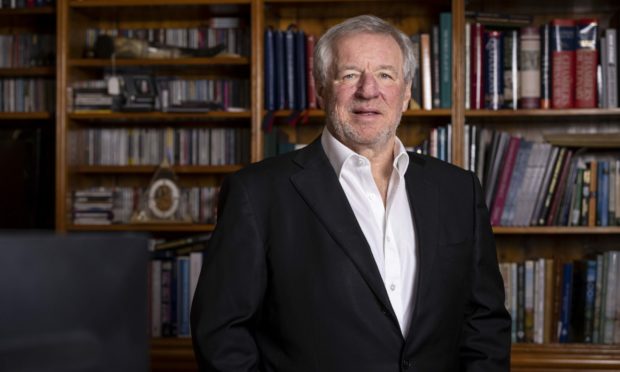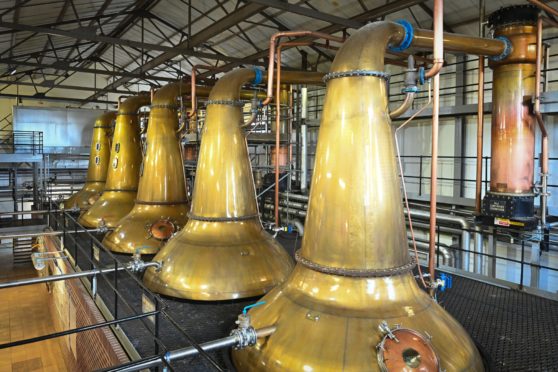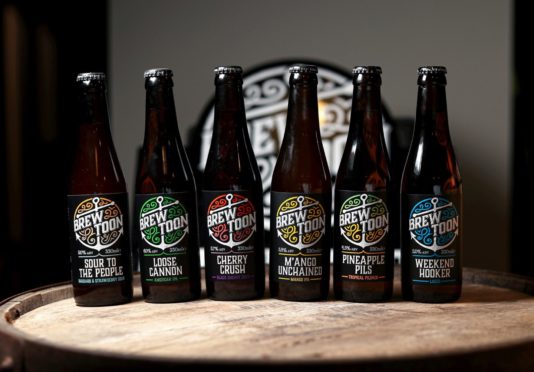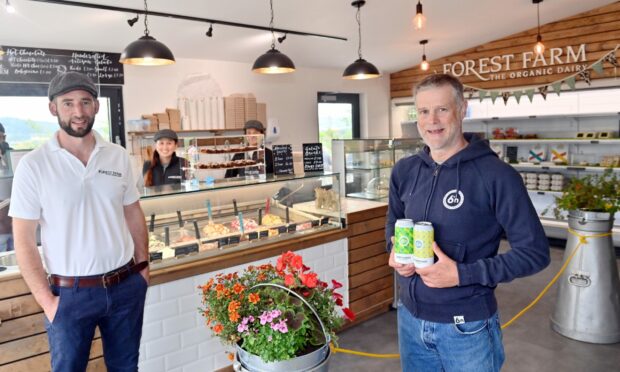After the stressful experience of the pandemic, some people may feel they need a stiff drink.
Fortunately, Scots are well catered for in that respect – especially if they live in the north-east.
The drink industry is a key contributor to Scottish wealth creation.
Scotch whisky is the jewel in the crown. Every second, 36 bottles of Scotch are shipped from Scotland to 166 markets around the world, totalling over 1.14 billion bottles per year.
Whisky worth £5.5bn to the economy
More than 10,000 Scots are employed in the whisky industry, which provides £5.5 billion in gross value added to the UK economy.
But things are not so rosy as they seem. The whisky industry has been badly hit by the pandemic. Although exports totalled £3.8bn last year, that figure was down 23% from 2019.
And the 36 bottles per second export statistic represents a 13% fall from the previous year.
The limits on hospitality and travel around the world saw export values decline in 70% of Scotch whisky’s global markets.
Scots drink entrepreneurs ready for the challenge
The problem goes beyond the pandemic. The US is the most valuable market for Scotch, valued at more than £1bn in 2019, when it accounted for one-fifth of world exports.
But the imposition of a US tariff of 25% on single malts cut exports of Scotch to America by 32% last year, a loss of £340 million. The industry has now paid more than £500m in tariffs.
So, there are problems to be overcome but Scotland’s drinks entrepreneurs are equal to the challenge.
Of Scotland’s 134 whisky distilleries, 51 are on Speyside, with eight in Aberdeenshire.
Drink businesses of various kinds account for nearly 25% of the £2.2bn turnover of the food and drink manufacturing sector in the north-east.
The industry is hugely diverse – not just distilling and brewing, but soft drinks, mixers, health drinks and bottled water.
It has also become a leading contributor to the north-east’s increasing engagement with “experience” tourism.
Whisky leads the way here – there are 2.2 million visits a year to Scotch distilleries, making the industry the third most popular tourist attraction in Scotland.
More than 160 Scottish brewers
In the beer sector, there are now more than 160 brewers in Scotland, generating sales of nearly £380m a year and directly employing 1,500 people.
Typical of the ambitious younger businesses is Peterhead-based Brew Toon, producing distinctive small-batch craft beers.
The company lost 80% of its sales which were on-trade when lockdown began, but survived and grew the business by developing its e-commerce channel and winning support from the local market.
North-east drink offering is strong
The industry is showing resilience, such as Ellon-based BrewDog forming a new partnership with Japanese brewing giant Asahi – its first international joint venture.
Gin distilling is flourishing, with more than 100 Scottish brands, exporting to a value of £400m, and around 15 distilleries in Aberdeenshire.
We’re making rum here too, with the Banchory-based Dark Matter distillery producing an award-winning spiced expression.
And it is not just the hard stuff that’s earning money – Ballater-based Deeside Water Company recently landed a major contract in South Korea.
SeedPod boost
The industry should get a significant job boost from the £21m SeedPod innovation hub, approved in May by Aberdeen City Council and led by Opportunity North East (One), when it opens.
Seen as a key future support for the drink industry, it will promote the drive to a low-carbon economy.
One has also organised the Provenance Festival, taking place at a variety of locations from today (September 24) until October 3, showcasing food and drink production at source, including local brewer Six Degrees North.
The drink industry has made strides in embedding sustainability in its production and distribution chain.
In January the Scotch Whisky Association launched a sustainability strategy aimed at achieving net-zero carbon emissions by 2040.
The Scotland Food & Drink Partnership has produced a Greening Your Business toolkit to help small and medium-sized enterprises, such as small distillers or brewers, to adopt green practices.
Hydrogen potential
Three major drink companies, in partnership with ScottishPower, are investigating the possibility of decarbonising distilleries by using hydrogen, created from renewable electricity, to heat their malt processing plants.
There is no shortage of creative ideas or entrepreneurial will to turn Scotland’s valuable drink industry into a motor of green recovery.
Martin Gilbert is co-founder and former chief executive of Aberdeen Asset Management.



